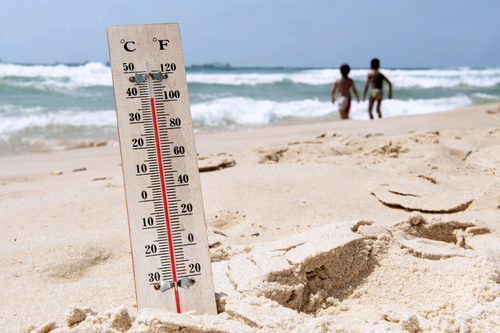Electric fans may do more harm than good in heat wave.
And the reason is because we don’t know exactly how the body’s cooling system really works.
In an editorial accompanying a review of studies from around the world on the effectiveness of electric fans, researchers writing this week in the The Cochrane Library say there’s no evidence that fans are the way to go during a heat wave.
In fact, they say, that when temperatures rise above 95 degrees, or roughly body temperature, the fan might actually make you even hotter, unable to sweat and sick. There’s some disagreement as to how, but some researchers have found hot air blowing on a hot body can cause an increase in the rate of dehydration or heat exhaustion.
Kay Dickersin, director of the Center for Clinical Trials and the U.S. Cochrane Center, based at Johns Hopkins University, says how the body copes with heat is very complex.
Public health officials have a responsibility to help the public cope with heat waves, however, large randomized testing is difficult given the nature of weather.
Not having the right answers leads health officials to be conservative when suggesting that using electric fans in temperatures greater than 95 degrees fahrenheit may not be helpful and could actually be harmful.


